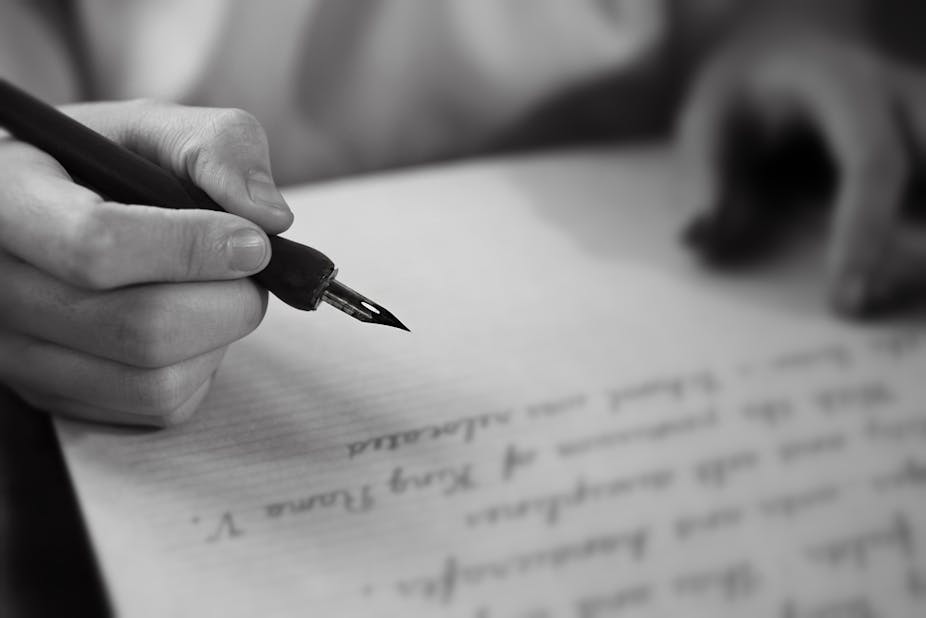Oxford-educated and the possessor of considerable charm, Michael Massey Robinson was also a cad and a bounder. Convicted of extortion in London in 1798, he was transported to New South Wales where he worked in the law. It did not take long for his old habits to reassert themselves, and Robinson was transported again, this time to Norfolk Island.
When he returned to Sydney, Robinson’s erudition, courtly manners and knowledge of literature found favour with Governor Lachlan Macquarie. In 1810, Macquarie appointed Robinson Australia’s first poet laureate. For the next decade, he composed poems for royal birthdays and state occasions. The job did not attract a salary, but Macquarie awarded Robinson two cows for his services.
Perhaps it was his awkward metre or peculiar rhymes, but Macquarie’s successor, Thomas Brisbane, was not impressed with Robinson’s poems. One of Brisbane’s first official acts was to sack Robinson. Nevertheless, his place in history was assured. Robinson was not only Australia’s first poet laureate, but he was also our last. The office has remained unfilled for 200 years.
Canada, New Zealand, Ireland, Germany, Iran, the Netherlands, Nigeria, the UK and other countries have poet laureates. The US has hundreds – one for the country, 44 state poets and numerous city and county laureates. There is even a Pike’s Peak poet laureate.
Poet laureates are no longer paid in livestock, but UK laureates receive a barrel of sherry wine. Their American equivalents receive US$35,000. Despite the low pay, the position has attracted some much-loved poets. The list of UK office holders includes Dryden, Wordsworth, Tennyson, Betjeman, Hughes, Motion and now, for the first time, a woman — the much-admired Carol Ann Duffy.
American poet laureates have also been distinguished — Lowell, Aiken, Williams, Frost, Spender, Pinsky, Brooks, Kumin and Jacobsen.
There have also been a few peculiar office holders. The 17th-century UK poet laureate, Nahum Tate, rewrote Shakespeare’s plays. His version of King Lear (The Sicilian Usurper) ends happily.
Should Australia resurrect its long-vacant position for a poet laureate? Some say no. “Official” poetry is an oxymoron – stilted, forced and politically correct. American poet Carl Sandburg ridiculed the idea of writing on demand:
Commanding a person to write a poem is like commanding a pregnant woman to give birth to a red-headed child.
Politics can never be avoided. Nobel laureate Seamus Heaney rejected the position of UK poet laureate as well as the opportunity to include his work in a British poetry anthology. Appropriately for a poet, Heaney explained his reasons in verse:
Don’t be surprised if I demur, for, be advised
My passport’s green.
No glass of ours was ever raised
To toast The Queen.
Politics aside, there is a place for poetry in public life. Joel Deane’s poem Bushfire Elegy captured the mourning of a nation and the lasting power of poetry:
Can only see a country burned into the shape of words both beautiful and terrible
beautiful being the harmony of voices that are people and places
terrible being the dissonant roar that is the call of wild fire.
Les Murray has brought Australia to the world. Australia is a:
whipcrack country of white cedar / and ruined tennis courts
[home to] passionflower and beige-bellied wonga vine
Murray is widely loved, but an official poet laureate can do much more than an unofficial one.
American poet laureate Joseph Brodsky placed poetry in airports, supermarkets and hotel rooms. Another American poet laureate, Maxine Kumin, ran poetry workshops for politicians. It might not help them get elected, but it certainly would not hurt Australian politicians to read Shelley’s Ozymandias; they may gain a little humility.
In this age of money, it may seem anachronistic to advocate for the creation of an unpaid role for a poet laureate. But our current focus on the bottom line is precisely the reason that the role is so important. To quote Robert Graves:
There’s no money in poetry, but there’s no poetry in money, either.
Australia needs a poet laureate; the sooner, the better.

